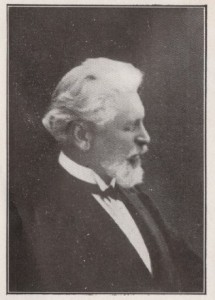Le Cour, Paul
Paul Le Cour (1871-1954) was the co-founder, together with Roger Dévigne, of the  Society for Atlantis Studies in 1925. However, the group split into two shortly afterwards with Le Cour as president of Societe Francais d’Atlantologie and Dévigne leading his own group. It appears that Dévigne’s pragmatic approach was incompatible with Le Cour’s more esoteric views which had veered towards Celtic Mysticism. As one person commented, “Le Cour became more interested in the soul than the body of Atlantis”. Le Cour’s first book about Atlantis was A la recherche d’un monde perdue[1411].
Society for Atlantis Studies in 1925. However, the group split into two shortly afterwards with Le Cour as president of Societe Francais d’Atlantologie and Dévigne leading his own group. It appears that Dévigne’s pragmatic approach was incompatible with Le Cour’s more esoteric views which had veered towards Celtic Mysticism. As one person commented, “Le Cour became more interested in the soul than the body of Atlantis”. Le Cour’s first book about Atlantis was A la recherche d’un monde perdue[1411].
In the 1930’s Le Cour found several mysterious clay seals on the Canary Islands in a grotto near San Miguel de Tenerife, which he claimed were “artefacts from the lost continent of Atlantis”. It is noteworthy that the writing on these San Miguel seals did not match inscriptions found on the nearby island of Hierro.
Le Cour’s association is now known as Centre de Recherches et d’Études de la Tradition (C.R.E.T.) which has a supporting website(a).
* (a) https://atlantis-site.com/index.php (offline June 2017)*
See Also: Guanches
